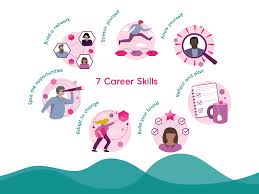Critical thinking is a fundamental skill that enables individuals to analyze, evaluate, and synthesize information in a logical and systematic way. It is essential for problem-solving, decision-making, and effective communication. This article delves into what critical thinking is, why it is important, and how to develop and apply it in various contexts. 1. What is Critical Thinking? Critical thinking involves the ability to think clearly and rationally about what to believe or what to do. It encompasses several key elements: Analysis: Examining information and arguments to understand their structure and meaning. This involves identifying key points, assessing evidence, and recognizing underlying assumptions. Evaluation: Assessing the credibility and relevance of information. This includes evaluating arguments based on logic, evidence, and reasoning, and identifying biases or logical fallacies. Synthesis: Integrating information from various sources to form a coherent understanding or to generate new ideas. This involves combining insights from different perspectives to develop well-rounded conclusions. Reflection: Contemplating one’s own thought processes and decisions. Reflecting on how conclusions are reached and considering alternative viewpoints helps refine critical thinking skills. 2. The Importance of Critical Thinking Critical thinking is crucial for several reasons: Problem Solving: It helps individuals approach problems systematically, identify solutions, and make well-informed decisions. Critical thinking enables one to break down complex problems and evaluate potential solutions effectively. Decision Making: By evaluating evidence and considering various perspectives, critical thinking supports making sound decisions in personal, academic, and professional contexts. Effective Communication: Critical thinking enhances the ability to articulate ideas clearly and persuasively. It helps in constructing well-reasoned arguments and engaging in meaningful discussions. Academic Success: Critical thinking is vital for academic achievement. It allows students to analyze texts, evaluate research, and synthesize information, leading to deeper understanding and better performance. Informed Citizenship: In a democratic society, critical thinking is essential for making informed decisions about civic issues, understanding policies, and participating in public discourse. 3. How to Develop Critical Thinking Skills Developing critical thinking skills requires practice and intentional effort: Ask Questions: Cultivate curiosity by asking probing questions about information and arguments. Questions such as “What is the evidence for this claim?” or “What are the potential counterarguments?” encourage deeper analysis. Engage in Reflection: Regularly reflect on your thought processes and decisions. Consider how you arrived at certain conclusions and whether alternative perspectives were considered. Practice Analytical Thinking: Analyze texts, arguments, or problems by breaking them down into components. Evaluate the validity of each component and how they contribute to the overall understanding. Seek Diverse Perspectives: Expose yourself to different viewpoints and opinions. Engaging with diverse perspectives helps broaden your understanding and challenge your own biases. Solve Puzzles and Problems: Engage in activities that require logical reasoning and problem-solving, such as puzzles, brainteasers, and case studies. These activities enhance analytical and evaluative skills. Participate in Discussions: Engage in discussions and debates with others. Constructive debates provide opportunities to practice articulating arguments, listening to counterarguments, and refining your thinking. 4. Applying Critical Thinking in Various Contexts Critical thinking can be applied in various aspects of life: Academic Research: When conducting research, critically evaluate sources, methodologies, and findings. Ensure that conclusions are based on sound evidence and reasoning. Professional Environments: Apply critical thinking to make informed decisions, solve workplace problems, and develop strategic plans. Use analytical skills to assess business proposals, evaluate risks, and improve processes. Personal Decisions: Use critical thinking to make well-informed choices in personal matters, such as financial planning, health decisions, and lifestyle changes. Evaluate the pros and cons and consider potential outcomes. Media Consumption: Apply critical thinking when consuming media and information. Assess the credibility of sources, recognize biases, and differentiate between factual information and opinion.
Understanding Critical Thinking
Critical thinking is a vital skill that enhances problem-solving, decision-making, and communication. By developing and applying critical thinking skills, individuals can approach challenges with greater clarity, make more informed decisions, and engage in meaningful discussions. Cultivating these skills is essential for academic success, professional effectiveness, and personal growth.
- Details

